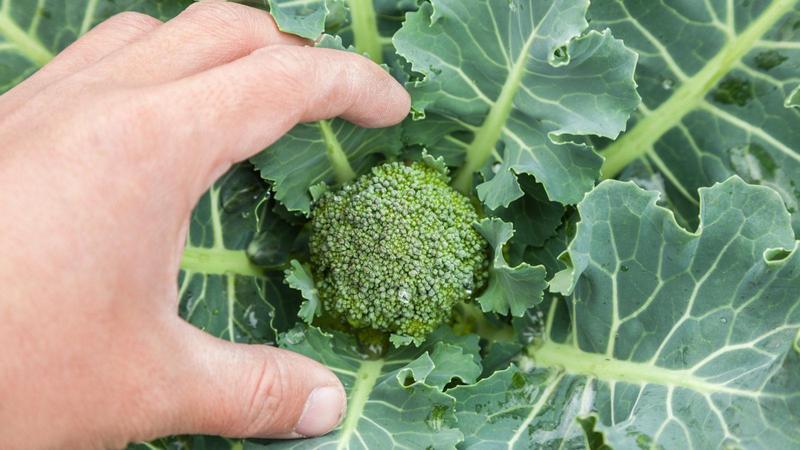Medical Doctor Sells Practice, Opens Up “Farmacy” Using Food as Medicine
Medical Doctor Sells Practice, Opens Up “Farmacy” Using Food as Medicine
Dr. Robert Weiss believes that a change is coming about in the way we approach health and medicine, or rather a reconnection with knowledge that was shunned with the onset of big pharma.
He sold his practice in New York and built the first farm-based medical practice on a 348-acre farm in Long Valley, New Jersey. It can be called a “farmacy,” a place that explores and utilizes plant-based “food as medicine.”
“Plant-based whole foods are the most powerful disease-modifying tools available to practitioners — more powerful than any drugs or surgeries,” said Weiss, a doctor of 25 years in Hudson County.
Untold billions have been put into the production of synthetic chemicals to treat the symptoms of disease, yet the research of plant-based medicine has taken a back seat, despite its ancient history and already known potential.
The priority is prevention through proper diet, including fruits, vegetables, grains, nuts, beans and seeds. It’s “paleo” plus the best parts of human agriculture before they were turned into processed foods. However, this strict diet regimen can also be used to treat those already afflicted with ailments.
“I am not saying if you fall down and break your ankle, I can fix it by putting a salve of mugwort on it. You need someone to fix your fracture,” Weiss said. “I am talking about treating and preventing chronic disease — the heart attacks, the strokes, the cardiovascular disease, the cancers … the illnesses that are taking our economy and our nation down.”
He says that the nutrients in fruits and vegetables prevent inflammation, which is believed to be the cause of many chronic diseases.
Dr. Weiss said the lunch that was prepared during the interview—“a salad of baby kale, radicchio, purple carrots, cucumbers, onions and cherry husk tomatoes tossed with a walnut vinaigrette, followed by eggplant rollatini with tofu instead of cheese, and dairy-free chocolate pudding garnished with raspberries”—contains many naturally occurring drugs.
The goal is to reduce the reliance on dangerous pharmaceuticals that bring on a host of negative side-effects, addiction, and overdose death. Also, he strives to avoid, where possible, unnecessary surgeries.
Dr. Weiss points to the case of 90-year-old Angelina Rotella of West New York as model success story. On the night before Christmas Eve, she came to his office in a wheelchair with congestive heart failure.
“I asked her, ‘Do you want me to call 911 and admit you to Palisades General? Or will you let me feed you sweet potatoes and kale?’ Amazingly enough, with the help of her daughter, she chose this,” Weiss said. “She doesn’t have diabetes anymore and chronic heart failure. She is cooking, sewing and walking around town. I’m not saying it’s easy, but she seized the opportunity and she is transformed.”
The prescription was a strict diet including “grains (such as whole-grain brown rice and sweet potatoes), steamed greens (including kale and spinach), fruit (a big serving of wild organic blueberries is a must) and water.” Her daughter, Angie Rotella-Suarez, calls it “more than a miracle,” saying her mother stopped taking her heart blood pressure medication within two weeks.
The plant-based diet was so effective that Rotella-Suarez and her sister took up the same diet and lost 40 pounds, and are no longer pre-diabetic.
The farmacy already has 90 families that pay a membership fee and volunteer time picking weeds and harvesting vegetables. Part of the mission is to get people more interested in their diet through being involved in the food production.
“Human health is directly related to the health of the environment, the production of food and how it is grown,” said Weiss, who earned an undergraduate degree in botany at Rutgers College of Arts in Science in Newark. “I see this farm as an opportunity for me to take everything I’ve done all my life, all the biology and chemistry of plants I have studied, and link them to the human biological system.”
Indeed, there are more benefits to the act of growing one’s food than the we may realize. According to this study, working in the garden and making contact with soil bacteria can make you smarter and happier, by triggering the release of serotonin in the brains.
Dr. Weiss is truly following the advice given by Hippocrates so long ago – “Let food be thy medicine and medicine be thy food.”
Be the first to post a message!
